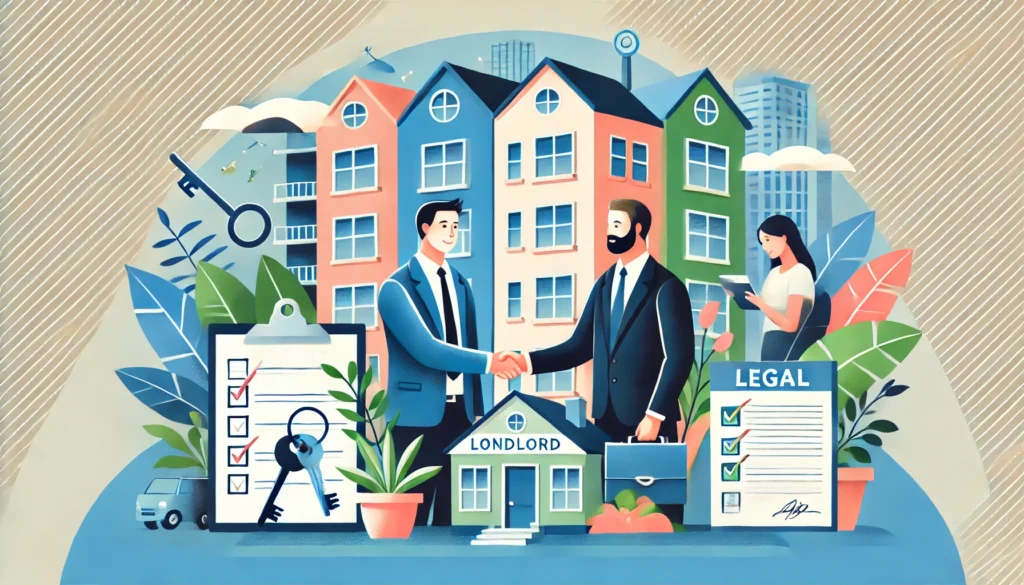
Navigating the rental landscape in the Philippines can be a challenging endeavor for both landlords and tenants. Understanding the rights and responsibilities associated with tenancy ensures a balanced relationship and mitigates potential disputes. Whether you’re a tenant or a landlord, being informed is your best defense. This article provides an in-depth look at the rights, responsibilities, and laws governing tenancy in the Philippines.
Legal Framework: Key Laws Governing Tenancy
The Rent Control Act (Republic Act No. 9653)
The Rent Control Act, periodically updated to reflect inflation and market conditions, is a crucial regulation for residential tenants. It applies to residential units renting for up to PHP 10,000 in Metro Manila and other highly urbanized cities and up to PHP 5,000 in other areas.
Key provisions include:
- Rent Increase Caps: Rent increases are limited to a maximum of 7% annually for units covered under the act.
- Security of Tenure: Tenants who comply with lease terms cannot be arbitrarily evicted, even after the lease expires.
- Termination Requirements: Landlords must issue a formal notice at least three months before eviction, ensuring tenants have ample time to relocate.
The Civil Code of the Philippines
Aside from specific laws like the Rent Control Act, the Civil Code of the Philippines outlines general principles governing leases. It provides a framework for lease contracts, responsibilities of parties, and remedies for breaches.
Tenant Rights
Understanding tenant rights is vital to ensure fair treatment and protection. Here are key rights tenants are entitled to in the Philippines:
1. Security and Privacy
Tenants have the right to peaceful enjoyment of their rental property. This includes privacy, with landlords needing prior consent or a compelling reason, such as emergencies, to enter the premises.
2. Livable Conditions
Rental properties must be habitable. Landlords are responsible for maintaining the structural soundness and ensuring the provision of essential utilities like water and electricity.
3. Fair Rent Practices
The Rent Control Act protects tenants from excessive rent increases. Additionally, security deposits, often equivalent to one or two months’ rent, must be returned within a reasonable period after the lease ends, barring any legitimate deductions.
4. Protection Against Unlawful Eviction
Evictions require valid reasons, such as lease violations or property use for personal purposes. Tenants have the right to contest unlawful eviction through appropriate legal channels.
5. Access to Legal Remedies
Tenants can seek recourse through local government units, the Department of Human Settlements and Urban Development (DHSUD), or the barangay justice system for mediation in cases of disputes.
Tenant Responsibilities
While tenants enjoy significant protections, they also carry important responsibilities to maintain a balanced landlord-tenant relationship. Here are the main duties tenants must adhere to:
1. Timely Payment of Rent
Meeting rent payment deadlines is fundamental. Consistent delays or non-payment may result in penalties, termination of the lease, or legal action.
2. Proper Maintenance
Tenants must handle routine upkeep, such as cleaning and minor repairs. They are also responsible for any damages beyond normal wear and tear caused during their tenancy.
3. Observance of Lease Terms
Adherence to the lease agreement, which may include restrictions on subletting, noise levels, or alterations, is crucial to avoid breach of contract.
4. Vacating Responsibly
At the end of the lease term, tenants must vacate the property in good condition, ensuring that any damages caused during their stay are addressed.
Key Challenges and How to Address Them
1. Verbal Agreements
While verbal lease agreements are legally binding, they often lack clarity and can lead to disputes. Tenants should insist on written contracts to safeguard their interests and avoid misunderstandings.
2. Security Deposit Disputes
Landlords sometimes withhold security deposits unfairly. Tenants should document the property’s condition at the start and end of the lease to provide evidence in disputes.
3. Ambiguous Lease Terms
Ambiguities in lease agreements can lead to conflicts over rent increases, eviction procedures, and maintenance responsibilities. Tenants should clarify all terms before signing the contract.
4. Disputes Over Repairs
Determining who is responsible for repairs can be contentious. The law generally assigns major repairs to landlords and minor maintenance to tenants, but this should be explicitly stated in the lease.
How to Resolve Disputes
1. Barangay Mediation
The barangay justice system serves as a first-line mechanism for resolving landlord-tenant disputes. This informal process is cost-effective and accessible to all parties.
2. Filing Complaints with the DHSUD
For unresolved disputes, tenants can file complaints with the Department of Human Settlements and Urban Development. This body addresses legal conflicts and provides oversight for tenancy laws.
3. Legal Action
For severe cases, such as harassment or unlawful eviction, tenants can take legal action in municipal courts. However, this step is often more time-consuming and costly.
Tips for Tenants
Being a responsible and informed tenant can prevent many common issues. Here are actionable tips:
1. Carefully Review Lease Agreements
Ensure that all terms, including rent, payment schedule, and maintenance responsibilities, are clear and agreeable. Seek clarification for any ambiguities before signing.
2. Document Everything
Keep records of payments, written agreements, and communications with your landlord. Taking photos of the property’s condition when moving in and out can also help resolve disputes over damages.
3. Know Your Rights
Stay informed about your rights under the Rent Control Act and other tenancy laws. This knowledge empowers you to challenge unfair treatment.
4. Build a Positive Relationship with Your Landlord
5. Stay Updated on Local Laws
Maintaining open and respectful communication with your landlord can help resolve issues amicably and foster a positive living environment.
Laws governing tenancy can change, especially rent control regulations. Keeping updated ensures you’re aware of the latest protections and obligations.
Common Misconceptions
1. “Landlords Can Increase Rent Anytime”
While landlords can increase rent, it must adhere to the 7% annual cap for properties under the Rent Control Act. Increases beyond this limit can be challenged legally.
2. “A Lease Agreement Is Only Binding if It’s Notarized”
Lease agreements do not need notarization to be legally binding. However, notarized documents carry more legal weight in disputes.
3. “Tenants Must Handle All Repairs”
Tenants are generally responsible for minor repairs, but landlords must address major structural issues and ensure basic utilities are functional.
Role of Landlords in Tenant Rights
Landlords play a crucial role in ensuring tenants’ rights are upheld. They must:
- Provide Written Agreements: Clear and detailed lease contracts protect both parties.
- Maintain the Property: Ensuring the property is safe and habitable is a legal obligation.
- Follow Due Process for Evictions: Evictions must be based on valid reasons and follow proper legal procedures.
The Bigger Picture: Advocacy for Tenant Rights
The rental market in the Philippines is evolving, with urbanization and housing demand shaping tenant-landlord dynamics. Advocacy groups continue to push for stronger protections, including expanded rent control coverage and clearer guidelines for both tenants and landlords.
Conclusion
Understanding tenant rights and responsibilities in the Philippines is vital for navigating the rental market with confidence. Knowing your rights under laws like the Rent Control Act and adhering to responsibilities fosters trust and cooperation between tenants and landlords. For more information or legal assistance, visit the Department of Human Settlements and Urban Development (DHSUD), a reliable resource for tenancy-related concerns.
By staying informed and proactive, tenants can enjoy a safe and fair rental experience, contributing to a more stable and equitable housing market in the Philippines. If you are looking for a house to rent in Gensan you can visit: https://houseforrentingensan.com/




